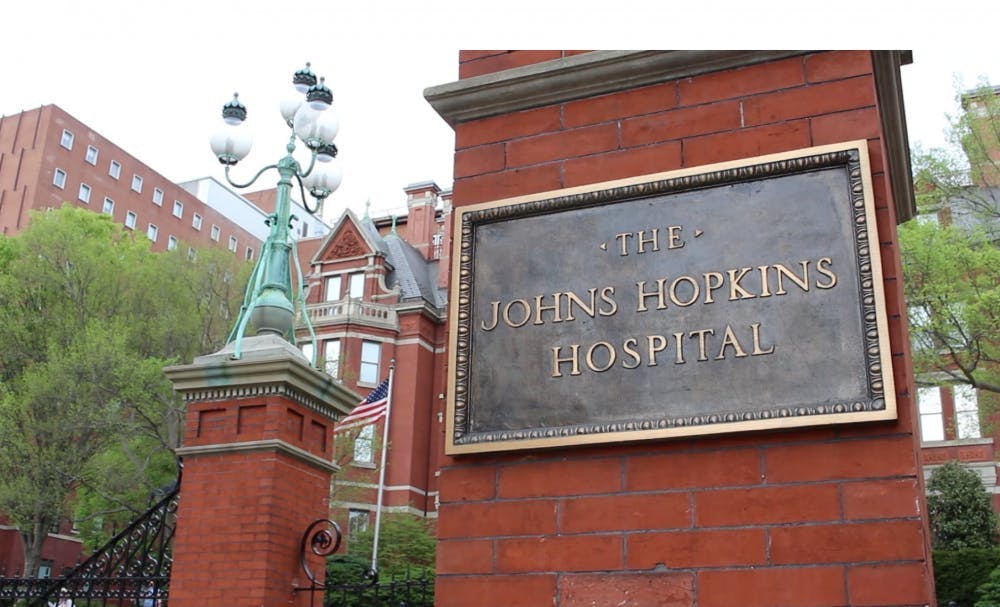The Institute for Clinical and Translational Research (ICTR) screened a video lecture honoring Henrietta Lacks and the impact of her cells titled “Henrietta Lacks Memorial Lecture: 100 years of Henrietta Lacks” on Saturday, Oct. 24. The event addressed the widespread reach and complexity of Lacks and her cells, both biomedically and ethically, and aimed to provide insight into the past, present and future of clinical research conduct.
Henrietta Lacks was a Black patient at the Hopkins Hospital who died of cervical cancer in 1951. While diagnosing and treating her disease, the Hospital took samples of her cancerous cells without her knowledge or consent.
Lacks’ cells were unique because, instead of dying quickly like other cells, they continued to reproduce, making them “immortal.” This allowed researchers to use her cells — dubbed HeLa cells — to pave the way for advances in modern medicine. The year 2020 marks what would have been Lacks’ 100th birthday.
This was the first year since 2010 that the annual Henrietta Lacks Symposium was not held in-person. Members of Lacks’ family, researchers and leaders at the University were invited to speak.
The speakers were introduced by Dr. Daniel Ford, director of the ICTR and the vice dean for clinical investigation at the School of Medicine. Ford emphasized that during the COVID-19 pandemic, honoring Lacks was both timely and a testament to the need to strive for a better world, strengthen community trust and fulfill the promise of medicine.
He connected Lacks’ contribution to the pandemic, noting that her cells are being used in COVID-19 research.
“HeLa cells were used to understand how the COVID virus enters human cells. The coronavirus attaches to the H2 inhibitor on human cells. This was important to know because H2 inhibitors are also associated with hypertension and some of the medications used to treat hypertension,” he said.
In an email to The News-Letter, senior Niat Habtemariam, co-president of the Student National Medical Association Minority Association of Pre-Medical Students, shared that she believes that the University’s efforts to honor Lacks were significantly delayed, but it is taking the right steps.
Habtemariam suggested that Hopkins expand its future efforts to honor Lacks.
“Hopkins needs to put in more effort to contribute to communities similar to where Henrietta came from and recognize that despite the time period at which her cells were taken, [there were] unethical implications of what they did,” she wrote.
Habtemariam explained that to do this, Hopkins needs to consider the negative impact that its research has on vulnerable communities, like Lacks’.
“Events like the Tuskegee experiment and the taking of Henrietta’s cells have contributed to mistrust in research within the Black community, which Hopkins needs to recognize and understand,” she wrote.
During the Henrietta Lacks Memorial video, Dr. Sherita Hill Golden, vice president and chief diversity officer at Hopkins Medicine, acknowledged that there is a distrust between minority communities and medical researchers that goes back hundreds of years.
“During the times of slavery, it was not uncommon for slaves to be experimented on without their consent and without anesthesia. In fact, the consent would be obtained from the slave owner but not from the slave him or herself,” she said.
Golden explained that doctors falsely assumed that Black Americans had a higher pain threshold than other groups, even though there was no scientific foundation to support this.
“That’s because these physicians had to tell themselves this in order to justify what they were doing back then,” Golden said.
Fellow speaker Dr. Gregg Semenza, a 2019 Nobel Prize recipient and professor at the School of Medicine, explained that HeLa cells played a role in carrying out his Nobel Prize winning research, which studied how the body's cells sense and react to low oxygen levels. He was able to culture 120 liters of HeLa cells, from which he purified HIF-1 proteins from their nuclei.
Semenza elaborated on why he needed HeLa cells to accomplish this.
“Most cells have to be grown on a plastic dish and they spread out on a flat surface, and there’s only so many cells that will fit on the dish, but HeLa cells have the remarkable property that they can be grown in fluid,” he said. “As long as you can keep everything swirling around, you can get very large numbers of cells.”
In an email to The News-Letter, junior Daniel Habib, an officer for the Medical Ethics Discussion Panel, urged the University to continue its commitment to transparency, gain informed consent from its patients and properly credit willing subjects in its research.
Habib argued that informed consent should not be viewed as just another checkmark in the review process.
“It should be a major talking-point that generates a thoughtful design for providing subjects with clear, understandable and unabridged information about the research without getting caught up in confusing, higher-level specifics that are not pertinent to subjects weighing the choice of participating or not,” he wrote.
Habib emphasized the importance of recognizing Lacks’ legacy.
“Henrietta Lacks should not be remembered as a helpless victim but as the spark of a paradigm shift in research ethics and science,” he wrote.





